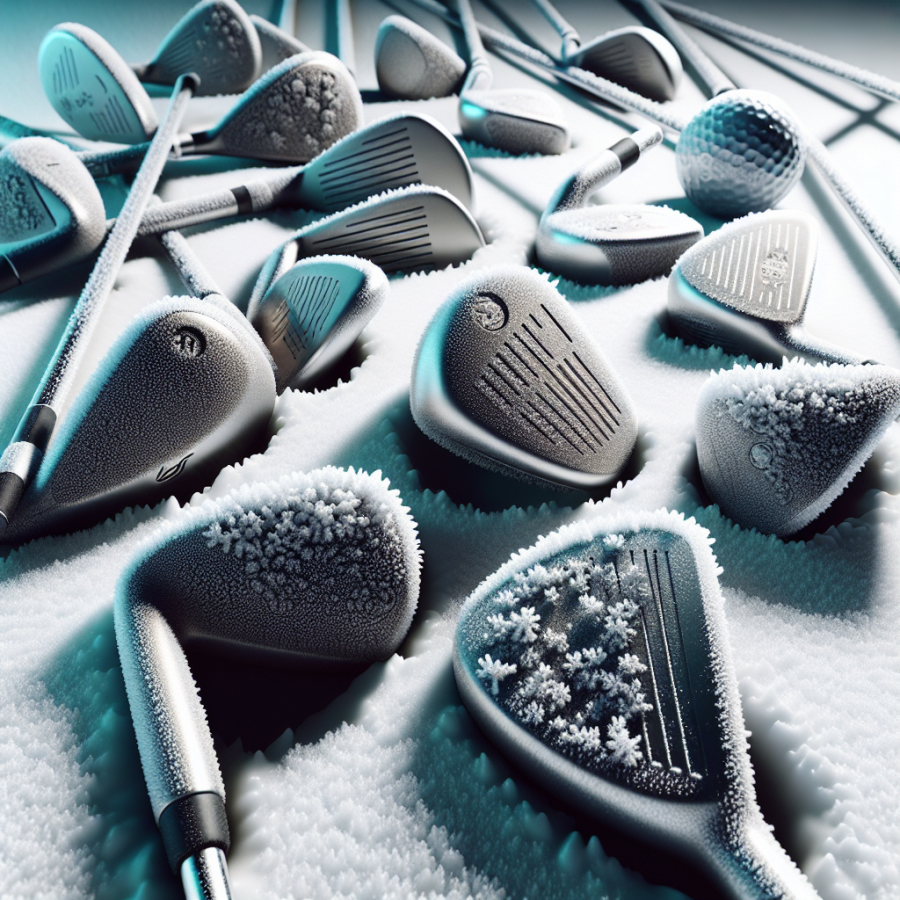Practical Tips for Protecting Your Golf Gear in Freezing Conditions
Freezing temperatures can wreak havoc on your golf gear if not properly cared for, resulting in expensive damages, and may even affect your overall performance on the course. There are a number of ways you can protect your golf gear against the harsh effects of cold weather.
Storing Your Golf Gear Properly: One of the first steps you can take to protect your golf gear from freezing conditions is to store them properly. This means storing your golf clubs and other gear in a temperature-controlled environment. Cold weather can cause the grips on your golf clubs to become hard and brittle, which can make them less effective. If storing them inside isn't an option, consider a heated storage unit.
Keeping Your Gear Dry: Moisture can be a significant issue in cold weather. The dampness can freeze on your clubs, potentially affecting their performance. Additionally, freezing and thawing cycles can lead to rust. After each use, wipe down your clubs and any other gear to remove any excess moisture before storing.
Using Head Covers: Another great way to protect your golf clubs during the winter months is with head covers. These covers provide a protective layer between your golf clubs and the elements, helping to reduce the risk of any damage. Consider investing in insulated covers for extra protection during harsh winters.
Avoiding Excessive Use: Freezing temperatures can be harsh on your golf gear. Constant exposure to such conditions can speed up the wear and tear of your equipment. Whenever possible, try to avoid using your golf clubs in exceptionally cold conditions.
Use Winter Golf Balls: Standard golf balls can become hard in cold weather, affecting their performance. Winter golf balls, however, are designed to withstand freezing temperatures. They're typically made from a softer material that retains its elasticity even under cold conditions, which can help improve your performance in cold weather.
Hot Water Treatment for Stiff Grips: If the grips on your golf clubs become stiff due to the cold, a warm water treatment can help to restore their flexibility. Just fill a sink or a large container with warm (not hot) water and let the grips soak for a few minutes. Make sure you dry them thoroughly before storing to avoid moisture-related issues.
With these practical tips, you can help protect your golf gear from freezing temperatures, ensuring their longevity and optimal performance on the course. Remember, regular care and maintenance of your golf gear are as essential as practicing your swing.
Understanding How Cold Weather Can Damage Your Golf Clubs
Freezing temperatures can often bring havoc to your golf equipment. One might not think that cold weather would significantly affect golf clubs, but in reality, it has a series of adverse effects that you should be aware of.
Firstly, cold weather can cause significant damage to golf club shafts. Commonly made from graphite or steel, the shafts can both contract in freezing temperatures, which can increase the likelihood of them snapping or becoming misshapen. Graphite shafts, in particular, become more brittle in colder temperatures and thus are more susceptible to damage.
Then there are the clubheads, which are typically made from metal materials like steel or titanium. Like the shafts, these also contract in the cold but to a lesser degree. However, the issue arises when hitting frozen or extremely cold golf balls. The impact's force is amplified due to the ball’s increased hardness, putting added stress on the clubhead. This can result in dents, cracks, and other types of damage that interfere with play and reduce the club's lifespan.
The grip is another essential part of the golf club that can deteriorate in cold weather. Often made of materials like rubber or synthetic materials, these can harden and lose their traction in freezing temperatures. This will adversely affect your ability to handle the club, possibly altering your swing and overall game performance.
Even golf balls are not immune to the effect of freezing temperatures. They become harder and less responsive to strikes, which can lead to decreased distance and inaccurate trajectories. Hitting a frozen ball can also exacerbate the risk of damaging your golf clubs, as discussed earlier.
Cold weather also influences how golf clubs are stored. Golf clubs should always be stored in a cold-free area. Storing them in your car trunk or unheated garage subjects them to extreme cold, which increases the likelihood of damage. The pressure changes that occur during this exposure can throw off the equilibrium of the club, resulting in a negative impact on their performance.
Lastly, it's crucial to note the possibility of an increased frequency of mishits because of uncomfortable playing conditions. Golfers often rush swings or misjudge their shots while playing in the cold to limit exposure to the elements. These mishits can jolt the clubs, causing them to twist or snap.
With all these potential issues, it's clear why protecting your golf clubs from cold weather is essential.




